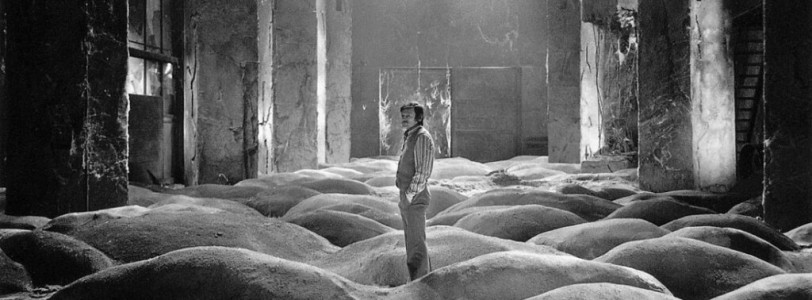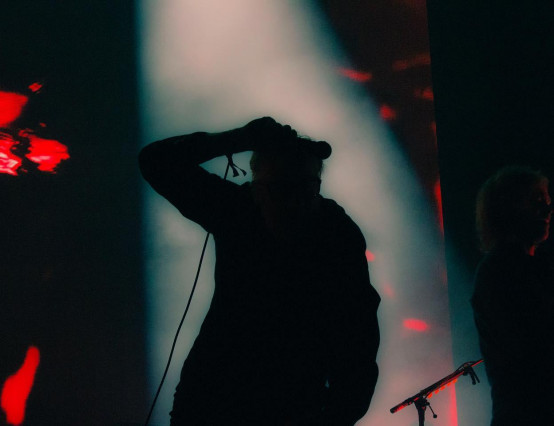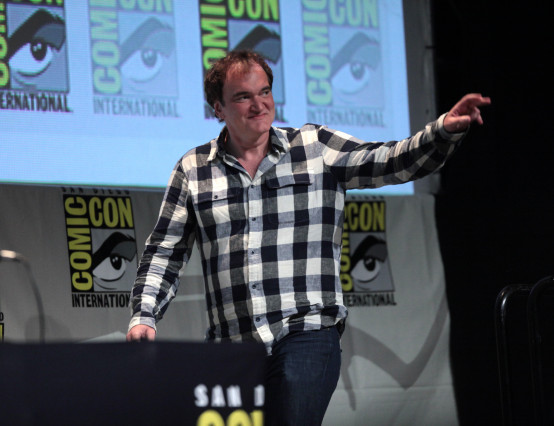Andrei Tarkovsky was one of the most acclaimed filmmakers of his generation, and his legacy since his death has only grown. His films – of which he only made 7 – are widely regarded as some of the greatest of all time, and the influence he had on his fellow filmmakers is immense. He is a precursor to the slow cinema movement, and his films truly personify the term “poetry in motion” more than anything made before or since. He was fascinated by the nature of time and memory and frequently explored spiritual and philosophical themes by utilising slow pacing and long takes. Here is our ranking of his films.
7. Andrei Rublev
Perhaps a controversial choice for 7th, Andrei Rublev is sometimes considered Tarkovsky’s magnum opus. It is a biographical historical drama about the eponymous Russian painter who lived during the late 14th and early 15th centuries. The portrayal of medieval Russia in the film is realistic, but the story of Andrei Rublev’s life itself is largely fictionalised in order to thoroughly explore the themes of art and religion. The fact Andrei Rublev is 7th on this list by no means signifies that it is a bad film. It is brilliant. Something, however, has to come last, and each of the following six are slightly more brilliant.
6. Ivan’s Childhood
Ivan’s Childhood was Tarkovsky’s first feature film, and it is a war drama about Ivan, a young boy during the second world war whose parents were killed by invading German forces. Tarkovsky made the film because he had a deep hatred for war and wanted to contrast the innocence of childhood with the horrors of war. The result is a brilliant and incisive look at humanity at its worst, and despite the harrowing subject matter, it never fails to look incredible. The cinematography, despite being Tarkovsky’s debut feature, is as good as any of his films, which is incredibly high praise considering it is something he is most famous for.
5. Nostalgia
One of the final scenes in Nostalgia consists of a man lighting a candle at one end of a drained pool, and attempting to walk it to the other end without it going out. After a few attempts, he eventually succeeds. The whole thing lasts around 10 minutes and is a single take. It’s a brilliantly simple scene that manages to say so much about the human experience and the creative process, and it perfectly encapsulates what the film is about. The film itself concerns a writer who visits Italy and begins to experience homesickness, and unlike Tarkovsky’s other films, relatively little has been written about it. It could be that it is a little inaccessible compared to some of his other films, but Nostalgia is also probably his most poetic film, and it is certainly his most under-seen. That deserves to change.
4. The Sacrifice
The Sacrifice was the last film Tarkovsky made, releasing shortly before his untimely death in 1986. While celebrating a birthday, Alexander and his family hear planes fly overhead before watching a television broadcast that announces nuclear war may be imminent. The concept of the story is rather simple, but it lends itself to some wonderfully poignant and moving dialogue. The climactic scene contains one of the most iconic shots of Tarkovsky’s entire oeuvre: an ambulance arrives to help Alexander as he runs around the waterlogged field next to the house he has set on fire.
3. Mirror
If Nostalgia is inaccessible, then it’s tough to even know how to describe Mirror. A sort of filmic stream-of-consciousness, Mirror has no conventional plot and contains scenes in colour, black-and-white, and sepia as it jumps from one scene to another. The structure is discontinuous and non-chronological as it explores the thoughts, memories, and emotions of the closest thing it has to a protagonist, and it is extremely difficult to properly follow. As with all art, however, you get out what you put in, and Mirror can be one of the most rewarding films you’ll ever watch. It is exquisitely crafted, and if the shot of the burning house in The Sacrifice is one of Tarkovsky’s most iconic shots, the burning barn in Mirror is one of the very few that surpass it. Truly one of the most unique and sublime experiences you can have in cinema.
2. Solaris
Tarkovsky’s answer to 2001: A Space Odyssey (a film he described as “a lifeless schema with only pretensions to truth”) was Solaris, which he hoped would bring emotional depth to the science-fiction genre. He certainly succeeded regarding the emotional depth – his 1972 classic focuses on a space station orbiting the fictional planet Solaris, and the psychologist who is sent to the station following strange events involving hallucinations. As it turns out, the water on Solaris is a type of brain that brings out people’s repressed memories and emotions, and after his first night sleeping there, the psychologist finds his wife – who died 10 years prior – sitting in his sleeping quarters. If Tarkovsky’s films didn’t already stick with you enough, Solaris’ themes surrounding the human psyche, memories, and the unconscious, along with one of the most haunting endings you will ever see ensure that you will be thinking about this film for a long, long time after finishing it.
1. Stalker
Perhaps the most well-known of Tarkovsky’s films is Stalker, and that is not without good reason. Another science-fiction film, it is about a writer and a professor who are guided by a man known as a Stalker through a mysterious area called the “Zone,” which does not abide by the laws of physics and is guarded by military outposts. At the centre of the Zone lies a room that is said to grant people’s innermost desires. Adapted from the sci-fi novel Roadside Picnic, Stalker is technically a science-fiction film, but the sci-fi elements are stripped back significantly, mostly mentioned rather than overtly shown. The Zone consists mostly of lush greenery, and its danger is vaguely explained to us by the Stalker rather than being shown to us. Instead, Tarkovsky explores the human mind while the characters explore the Zone, focusing on philosophical dialogue while the writer, professor, and Stalker inch closer to the room that will grant their deepest desires. It’s difficult to explain why Stalker is such an incredible film. On paper, it perhaps doesn’t sound like the most thrilling experience. The beauty of the imagery combined with the fascinating concept and profound dialogue, however, makes for an experience that will almost certainly stick with you for a long time.









0 Comments